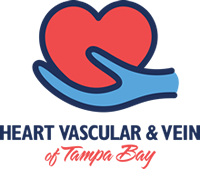Treatments For Unexplained Stroke
Exploring Various Options including Medication, Lifestyle changes, Cardioversion, Pacemaker & Catheter Ablation
TALK TO US
These talking points will help you remember important information related to your symptoms to share with your healthcare team.
REMEMBER TO SHARE:
- A description of your symptoms (if applicable)
- The number of episodes you’ve had in the past 2 years
- What you were doing before you had symptoms
- Any concerns you have (e.g., safety, your job, driving)
- Any treatments you are receiving for your heart
- If your family has a history of heart conditions
- How your symptoms are affecting your home and work life
REMEMBER TO ASK:
- How will you determine if I have a heart condition?
- What tests will you perform?
- Would long-term monitoring with an insertable cardiac monitor lead to a faster diagnosis?
- What should I do when I experience symptoms?
- Should I be concerned about my symptoms?
- Will I need treatment? If so, what kind of treatment? What other alternatives are there?
- Do I need to restrict any activities?
TREATMENT OPTIONS
If it is determined that you have experienced episodes of atrial fibrillation (AFib), your doctor will recommend the most appropriate treatment to help prevent another stroke from occurring.
These treatments may be used to help manage your AFib and prevent another stroke.
LIFESTYLE CHANGES
Making certain lifestyle changes may improve your overall heart health. Your healthcare team may recommend that you:
- Eat heart healthy foods
- Choose a low-salt diet
- Exercise
- Stop smoking
- Limit alcohol intake
MEDICATIONS
Medication may be prescribed to control your heart rate or rhythm. In addition, anticoagulation (blood-thinning) drugs are aimed at preventing clots from forming that can lead to a stroke.
CARDIOVERSION
A procedure called cardioversion may be used to reset an abnormal heart rhythm back to normal. Cardioversion is performed either with medications called anti-arrhythmics or with an electric shock delivered to your heart when you are sedated.
PACEMAKER OR IMPLANTABLE CARDIOVERTER DEFIBRILLATOR (ICD)
A medical device like a pacemaker or an ICD can detect and treat AFib early and suppress the onset of AFib.
CATHETER ABLATION
If medications or cardioversion don’t work or if you have side effects, catheter ablation is another option. During catheter ablation, either radiofrequency energy or cryotherapy is directed through a catheter inserted in an artery, toward abnormal electrical pathways in the heart tissue. Either method scars the tissue and may normalize the erratic electrical signals to correct the arrhythmia.
Information on this site should not be used as a substitute for talking with your doctor. Always talk with your doctor about diagnosis and treatment information.
